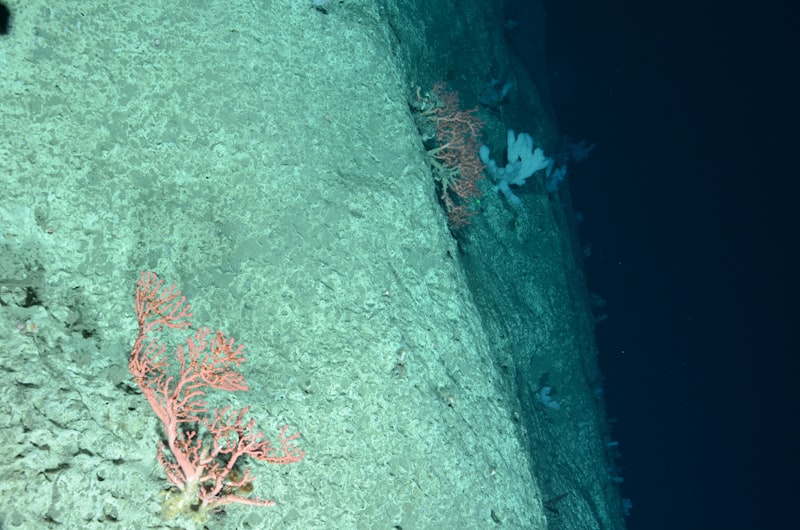Ever wondered about the tiny heroes that play a colossal role in our oceans? Enter marine phytoplankton—the ultimate powerhouse of the sea. These microscopic organisms may be small in size, but their impact is nothing short of extraordinary.
Marine phytoplankton are unicellular algae that float near the ocean’s surface, harnessing the sun’s energy through photosynthesis. They serve as the primary producers of oxygen, generating up to 50% of the world’s oxygen supply. This vital role makes them not only fascinating but crucial to our planet’s ecological balance.
What sets marine phytoplankton apart is their incredible nutritional profile. Packed with essential vitamins, minerals, antioxidants, and omega-3 fatty acids, they form the base of the marine food web. From tiny zooplankton to giant whales, countless marine species depend on phytoplankton directly or indirectly for their survival.
But their significance doesn’t stop there. Marine phytoplankton also play a pivotal role in regulating the Earth’s climate. By absorbing carbon dioxide from the atmosphere, they help mitigate global warming—a critical function in today’s environmentally conscious world.
In recent years, scientists and health enthusiasts alike have begun to recognize the potential benefits of marine phytoplankton for human health. Studies suggest that consuming phytoplankton supplements may support cellular health, boost energy levels, and even enhance cognitive function. This has led to an increasing interest in phytoplankton-based products in the wellness industry.
Marine phytoplankton are not just microscopic organisms drifting in the ocean; they are the unsung heroes of our planet. Their ability to produce oxygen, support marine life, regulate climate, and potentially benefit human health makes them a topic of both scientific interest and admiration. As we continue to explore and understand these tiny marvels, their significance in maintaining a healthy planet becomes clearer than ever.
Unlocking Nature’s Powerhouse: Why Marine Phytoplankton is Vital to Ocean Ecosystems
Have you ever wondered what makes the ocean so alive with vibrant marine life? Look no further than marine phytoplankton. These microscopic organisms may be small, but they play an enormous role in sustaining ocean ecosystems. Let’s dive into why marine phytoplankton is truly nature’s powerhouse.
Firstly, phytoplankton are like the green plants of the ocean. They harness the energy from the sun through photosynthesis, converting carbon dioxide into oxygen. In fact, marine phytoplankton produce over half of the world’s oxygen supply—more than all the rainforests combined! Just imagine the impact these tiny organisms have on our planet’s atmosphere.
But it doesn’t stop there. Marine phytoplankton form the base of the marine food web. They are a primary food source for zooplankton, which in turn are eaten by small fish, and so on up the food chain. Essentially, phytoplankton are the cornerstone that supports the entire oceanic food pyramid. Without them, marine life as we know it would cease to exist.
Moreover, these microorganisms are crucial in regulating Earth’s climate. By absorbing carbon dioxide, they help mitigate the effects of greenhouse gases, thereby playing a significant role in climate regulation. This intricate balance is vital not only for marine biodiversity but also for the health of our planet as a whole.
Interestingly, marine phytoplankton come in various shapes and sizes, from the colorful diatoms to the spiral-shaped coccolithophores. Each type contributes uniquely to the marine ecosystem, whether through nutrient cycling, carbon sequestration, or oxygen production.
Marine phytoplankton are not just microscopic organisms floating in the vast ocean; they are fundamental to life on Earth. Their ability to generate oxygen, support marine food webs, and influence global climate patterns underscores their importance. Next time you gaze out at the ocean, remember that its vitality and beauty are intricately tied to these tiny but powerful creatures.
Tiny Yet Mighty: Exploring the Ecological Role of Marine Phytoplankton
Their ecological significance extends beyond oxygen production. Phytoplankton form the base of the marine food web, providing nourishment for a wide array of aquatic species, from small zooplankton to large whales. They serve as a vital food source for various marine organisms, sustaining biodiversity and supporting commercial fisheries that feed millions worldwide.
Moreover, phytoplankton play a pivotal role in carbon cycling. Through photosynthesis, they absorb carbon dioxide from the atmosphere, helping regulate global climate by sequestering carbon in the ocean. This process not only mitigates climate change but also influences ocean acidity levels, impacting marine life and ecosystems.
Their adaptability to diverse environmental conditions allows phytoplankton to thrive across different oceanic regions, from nutrient-rich coastal areas to nutrient-poor open seas. Their population dynamics are influenced by factors like temperature, sunlight, and nutrient availability, making them sensitive indicators of environmental change and ecosystem health.

In summary, while often overlooked due to their size, marine phytoplankton are indispensable to life on Earth. Their role in oxygen production, carbon sequestration, and supporting marine biodiversity underscores their significance in maintaining ecological balance. Understanding and protecting these tiny organisms is crucial for safeguarding the health of our oceans and the entire planet’s biosphere.
From Ocean to Table: The Surprising Benefits of Marine Phytoplankton for Human Health
Marine phytoplankton are microscopic algae that float in the upper layers of the ocean, harnessing energy from the sun through photosynthesis, just like plants on land. Despite their small size, they pack a nutritional punch that rivals some of the most nutrient-dense foods known to man.
One of the standout benefits of marine phytoplankton is its rich nutrient profile. It contains a plethora of essential vitamins, minerals, antioxidants, and amino acids that are crucial for maintaining optimal health. From vitamin C to zinc, these tiny organisms offer a comprehensive array of nutrients that support various bodily functions.
But it doesn’t stop there. Marine phytoplankton also boasts a unique combination of omega-3 and omega-6 fatty acids, which are known for their anti-inflammatory properties and heart health benefits. These fatty acids play a vital role in brain function, skin health, and overall well-being.
What’s truly remarkable is the bioavailability of nutrients in marine phytoplankton. Unlike synthetic supplements, the nutrients in phytoplankton are easily absorbed and utilized by the body, making them highly effective in promoting health and vitality.
In addition to its nutritional benefits, marine phytoplankton has been studied for its potential therapeutic effects. Research suggests that it may help support cardiovascular health, improve immune function, and even contribute to detoxification processes within the body.
Imagine harnessing the power of the ocean’s tiniest inhabitants to boost your health from the inside out. Incorporating marine phytoplankton into your diet, whether through supplements or concentrated powders, could be a game-changer for your overall well-being.
Next time you marvel at the vastness of the ocean, remember that within its depths lies a powerhouse of nutrients waiting to benefit your health. Explore the world of marine phytoplankton and unlock nature’s secret to vitality and wellness.
Biodiversity Boosters: How Marine Phytoplankton Sustain Oceanic Life Forms
Phytoplankton act as primary producers, forming the base of the marine food web. Their rapid growth and reproduction provide a vital food source for various aquatic creatures. By absorbing carbon dioxide, they help regulate the Earth’s climate, contributing significantly to oxygen production and carbon sequestration.
In addition to their ecological importance, marine phytoplankton exhibit incredible diversity, with thousands of species identified to date. Each type plays a unique role in oceanic ecosystems, adapting to diverse environments ranging from polar seas to tropical waters. Their adaptability underscores their resilience in the face of environmental changes, making them essential indicators of ocean health.
Understanding phytoplankton diversity is crucial for monitoring oceanic ecosystems and predicting their responses to climate change and human activities. Scientists study these organisms to assess environmental impacts such as nutrient pollution and ocean warming, which can disrupt phytoplankton populations and cascade effects throughout marine food webs.
Moreover, marine phytoplankton inspire awe in their sheer abundance and critical role in maintaining planetary health. Their unseen yet profound influence on global oxygen levels and carbon cycling highlights the interconnectedness of life on Earth. Protecting these vital organisms is paramount for safeguarding ocean biodiversity and sustaining life both above and below the waves.
Climate Change Guardians: How Marine Phytoplankton Mitigate Carbon Dioxide Levels
Ever wondered who the unsung heroes combating climate change are? Look no further than marine phytoplankton. These microscopic organisms play a crucial role in mitigating carbon dioxide levels in our atmosphere. Despite their small size, they wield immense power in the fight against global warming.
Marine phytoplankton are like the superheroes of our oceans. They absorb carbon dioxide during photosynthesis, converting it into organic carbon. This process not only reduces the amount of CO2 in the air but also provides oxygen as a byproduct, essential for life on Earth. It’s a win-win situation orchestrated by nature’s smallest but most effective warriors.
What makes phytoplankton even more remarkable is their sheer abundance and diversity. Found in every ocean and body of water on the planet, these tiny organisms form the base of the marine food web. They sustain entire ecosystems, from zooplankton to fish to whales, ensuring the balance and health of our oceans.
But their environmental impact goes beyond supporting marine life. By absorbing carbon dioxide, marine phytoplankton help regulate the Earth’s climate. They act as a natural carbon sink, preventing excess CO2 from lingering in the atmosphere and contributing to the greenhouse effect. Without them, our planet would face even greater challenges from rising temperatures and disrupted weather patterns.
Next time you take a breath of fresh air, thank marine phytoplankton. Their unseen efforts are crucial in maintaining the delicate balance of our planet’s climate. As we continue to study and understand their role, it becomes clear that protecting these tiny but mighty organisms is essential for our own survival.
Join the ranks of those who champion climate change solutions. Support initiatives that preserve our oceans and safeguard the habitats of marine phytoplankton. Together, we can ensure that these guardians of the climate continue their vital work for generations to come.
Beyond the Surface: Unveiling the Economic Significance of Marine Phytoplankton
Have you ever considered the hidden powerhouse beneath the ocean’s surface? Marine phytoplankton, tiny organisms that thrive in aquatic environments, play a crucial role not only in marine ecosystems but also in global economics. Despite their microscopic size, these organisms are giants in their impact.
Marine phytoplankton are the foundation of marine food webs, serving as primary producers that convert sunlight into energy through photosynthesis. This process not only sustains marine life but also influences atmospheric carbon dioxide levels, contributing significantly to global carbon cycling.
Beyond their ecological importance, marine phytoplankton have profound economic implications. They are a vital resource for industries ranging from pharmaceuticals to cosmetics. These organisms produce compounds with unique biological activities, making them invaluable in the search for new medicines and health supplements.
Moreover, marine phytoplankton contribute to global fisheries by supporting the growth of zooplankton, which in turn feed fish larvae. This indirect support enhances fish populations and supports commercial fishing industries worldwide. Economically, healthy phytoplankton populations translate into robust fisheries and sustainable seafood supplies.
In addition to their direct economic contributions, marine phytoplankton play a crucial role in climate regulation. By absorbing carbon dioxide and producing oxygen, they help mitigate climate change impacts and maintain global oxygen levels essential for life on Earth.
As we delve deeper into understanding marine ecosystems, the economic significance of phytoplankton becomes increasingly apparent. From supporting fisheries to driving pharmaceutical discoveries, these tiny organisms are essential players in both ecological and economic landscapes. Their sustainable management and conservation are thus critical for ensuring continued benefits to humanity and the planet.

This article highlights the economic importance of marine phytoplankton while maintaining a conversational tone and incorporating engaging elements such as rhetorical questions and analogies to captivate the reader’s interest.
Frequently Asked Questions
Why are marine phytoplankton crucial for marine food chains?
Discover why marine phytoplankton are essential for marine food chains. Learn how they form the base of the marine food web, providing primary nutrition for various aquatic organisms. Explore their role in sustaining biodiversity and supporting fisheries worldwide.
What are the economic benefits of marine phytoplankton to human societies?
Learn about the economic benefits of marine phytoplankton and their impact on human societies. Discover how these microscopic organisms contribute to fisheries, pharmaceuticals, and environmental sustainability.
What role do marine phytoplankton play in the ocean ecosystem?
Learn about the crucial role marine phytoplankton play in the ocean ecosystem, from producing oxygen to forming the base of the marine food web.
How do marine phytoplankton contribute to global oxygen production?
Discover how marine phytoplankton significantly contribute to global oxygen production. They generate over half of Earth’s oxygen through photosynthesis, releasing oxygen as a byproduct. This process not only supports marine ecosystems but also plays a crucial role in maintaining the planet’s atmospheric balance.
How are marine phytoplankton affected by climate change?
Learn how marine phytoplankton are impacted by climate change, exploring shifts in ocean temperature, acidity, and nutrient availability affecting their growth and distribution. Understand the ecological implications of these changes on marine ecosystems.


